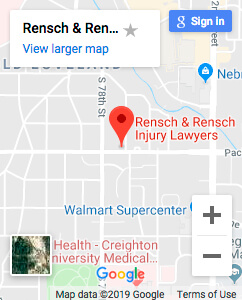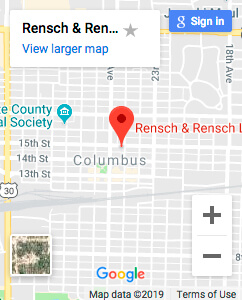Bike Share Companies Offering Alternatives for Individuals with Disabilities: Could This Prevent Accidents for Older Riders?
OMAHA, Nebraska. The elderly and individuals with disabilities may face a range of access issues in the community. If you have become disabled as a result of a car accident, for example, you may feel stress or anxiety about riding in a car again, and you may be facing a range of lifestyle changes. Fortunately, the needs of the elderly and of those with disabilities are now being considered by a range of companies and programs. According to the New York Times, one bike share company in Detroit is making bikes available for those with disabilities.
According to the New York Times, 35 million bike share rides were taken in 2017 alone. However, these same companies that have made bike riding accessible for diverse populations, haven’t always considered the needs of the disabled and elderly. Most bike share companies don’t offer options for limited mobility riders.
However, one company in Detroit is changing that by offering accessible bikes in its ride share program. Bike share programs are celebrated for their convenience, because they let riders rent bikes at a dock, ride the bike, and leave it at other docks located strategically throughout a city.
Bike share companies have come under fire for catering to wealthy and predominantly white users. Fortunately, cities are looking to expand these programs to include low-income users as well as those with disabilities. Older Americans could benefit from having access to adaptive tricycles which provide greater stability, and less risk of falling.
Some have wondered whether the increased number of shared bikes in cities will lead to an increase in bike accidents. According to Vox, researchers have found that no one has died while using a bike share in the U.S. Research indicates that bike share riders have lower crash rates than personally-owned bikes. Why?
Part of why bike shares are safer is that bike share bikes are designed to be safer. The bikes include safety features like bright colors, lights that make the bikes visible at night, and they are heavier, meaning that riders can’t ride as fast.
Bike shares tend to be located in parts of cities where traffic moves slower. Research has shown that when cars are driving at speeds under 30 miles per hour, the risk of death in a bike or pedestrian accident is significantly reduced.
Finally, bike share riders may also be less experienced, but this actually might make them more cautious than regular bike users who may take more risks. Experienced riders may be more likely to break the rules of the road to save time during their commutes.
What’s the takeaway? Ride share bikes are safe but bike accidents among regular bike users is still an issue. It appears that bike shares in cities may soon be required to accommodate users with disabilities, meaning there will be more diversity of road users. Adaptive bikes may be able to prevent injuries among elderly riders who may not have the same level of stability on a traditional bike.
Many bike accidents occur due to driver error. When these accidents occur, the biker is usually the one injured because bikes don’t have the protective chassis of a car. If you or a loved one was hurt in a bike accident, consider reaching out to Rensch & Rensch Law, a personal injury lawyer in Omaha, Nebraska. Our law firm can review the factors leading up to your bike crash and can fight to help you get the best possible settlement permitted under the law. Visit us at https://www.renschandrensch.com/ today to learn more.
Rensch & Rensch Law
7602 Pacific Street,
Suite 102
Omaha, NE 68114





